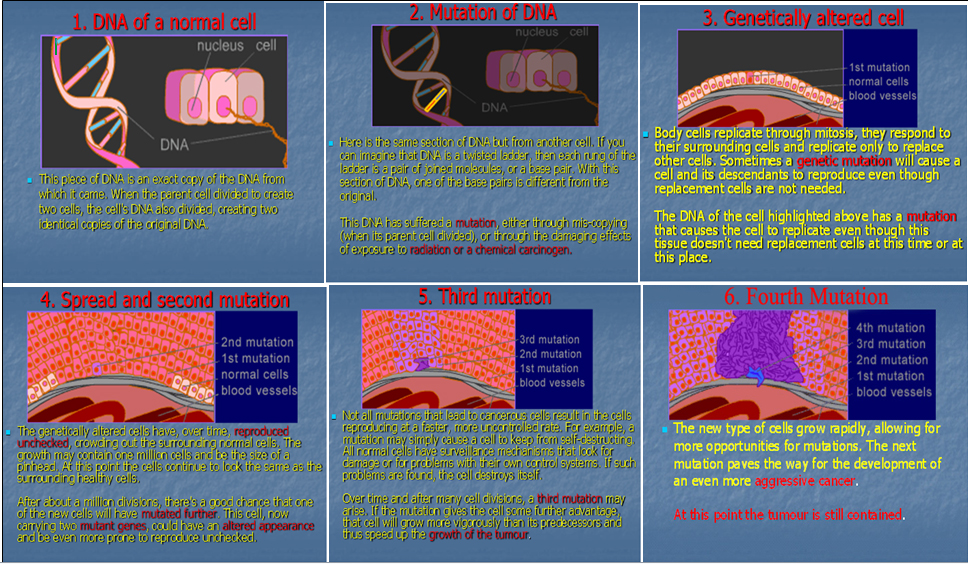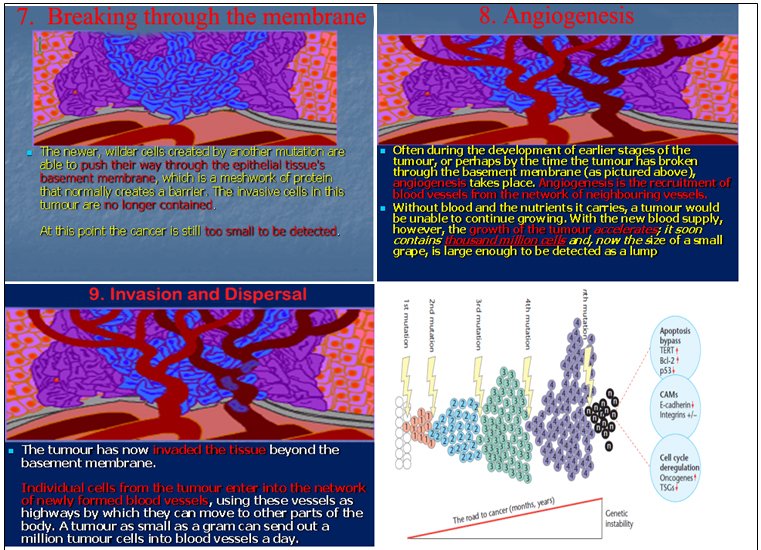Body is made up of billions of cells that can only be seen under a microscope. These cells are grouped together to make up the tissues and organs of our bodies. They are a bit like building blocks.
There are many different types of cells in the body which do different jobs, but they are basically similar. They all have a centre called a nucleus. Inside the nucleus are the genes. Genes are really bits of code. The information they carry can be switched on or off. The genes control the cell. They decide when it will reproduce, what it does and even when it will die. Normally the genes make sure that cells grow and reproduce in an orderly and controlled way. If the system goes wrong for any reason, the usual result is that the cell dies. Rarely, the system goes wrong in a way that allows a cell to keep on dividing until a lump called a ‘tumour’ is formed.
In fact, genes are coded messages inside a cell that tell it how to behave. Different genes tell the cell how to make different proteins. One gene codes for one protein. Each cell has many genes and can therefore make many different proteins. Proteins are the building blocks that make up a cell. Some proteins act as on and off switches that help to control how a cell behaves. For example, a hormone signal acts on a protein in or on the cell. The protein then sends a series of signals which tell the cell to reproduce by dividing into two.
Mutation means that a gene has been damaged or lost. A mutation may mean that too much protein is made. Or that a protein is not made at all. For example, a signaling protein may be permanently switched on. Or other proteins, whose job is to control and limit cell division, may be permanently switched off.
Something that damages a cell and makes it more likely to be cancerous is called a carcinogen. For example, there are carcinogens in cigarette smoke.


